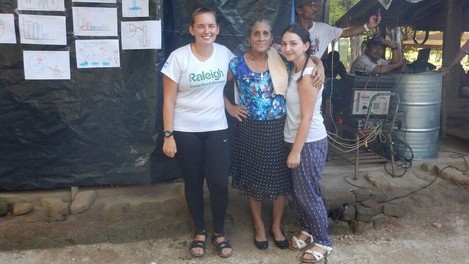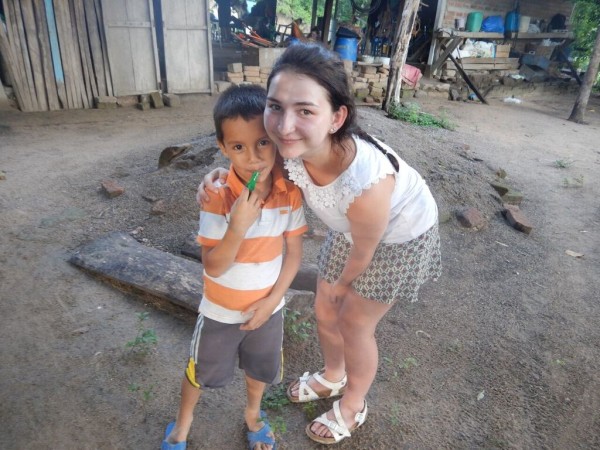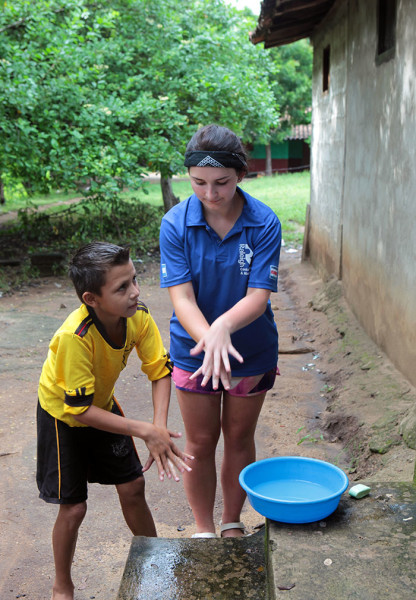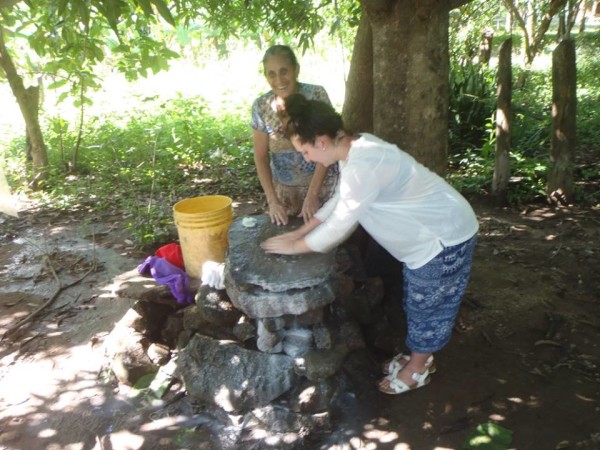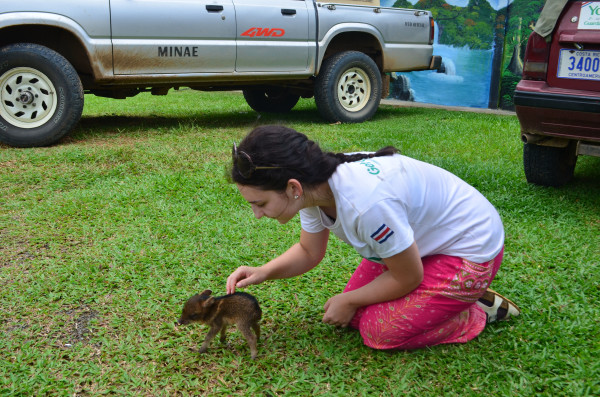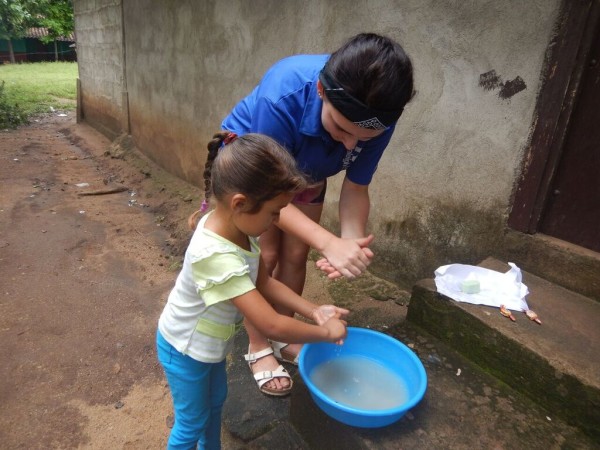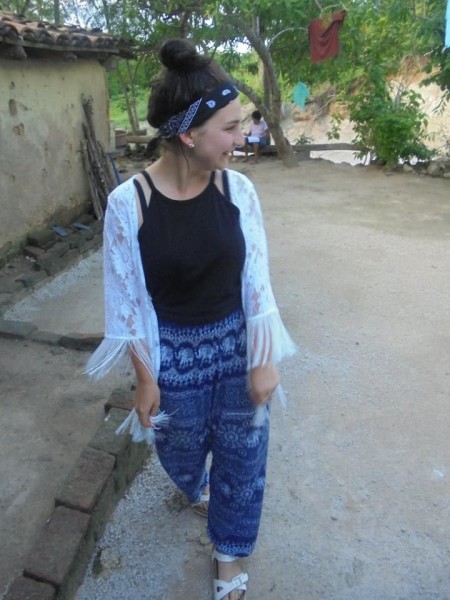Caroline Cartmill: Travel Award Report
On 10th October 2015, Caroline Cartmill (Class of 2015) embarked on a 10 week expedition to Costa Rica and Nicaragua with Raleigh International. Here, she tells us all about her time in Central America, and the voluntary work she did there…
“Raleigh is split into three phases, and we were in groups of approx. 12 people on each phase. For Phase 1 I was allocated to do WASH (Water, Sanitation and Hygiene projects) in a small village called Los Encuentros in Northern Nicaragua. Each day we woke up early to find a water source and dig trenches to provide running water to homes. We also worked within the community to educate them on personal and home hygiene, to improve their health. Me and another volunteer Emma set up a group for women within the community, as we are passionate about women’s rights and felt like a group could empower and emancipate women more.
I lived with a host family who couldn’t speak any English, meaning my Spanish was put to the test. The house I lived in was very basic, but the family adopted me as one of their own and called me their daughter. My grandmother Maria Teresa plaited my hair for me each day, taught me how to wash clothes by hand at the well, and also how to make tortillas from scratch. Every day I ate beans and rice for breakfast, lunch and dinner, washed in the river, and walked miles to and from the work site in the boiling dry heat. As challenging as it was I felt it made me stronger for the rest of the expedition and what was ahead.
My second phase was NRM (Natural Resource Management) in La Cangreja National Park, Costa Rica. It was fascinating to live within a national park that contained such great variety of plants, animals and wildlife. Costa Rica has 4% of the world’s biodiversity, and every day at work we spotted rare bird species, animals (such as white faced monkeys), snakes and other creepy crawlies! We assisted the park rangers in doing maintenance work, as there were only 4 rangers to cover the whole park. Poaching is a large issue in the area, so we also visited surrounding villages and primary schools to give environmental lessons (all in Spanish!) to try encourage them to look after the park and respect its natural resources.
My final phase was the Miratombo Trek in Nicaragua, which was by far the most physically challenging thing I’ve done in my life. We walked for 20 days, waking up at 3am every morning to start at sunrise and avoid the hottest part of the day. We camped in the wild most nights and only had 3 food drop-offs, meaning our bags were extremely heavy and our food and water had to be rationed. 240km, 2 volcanoes and many, many mountains later all 17 of us completed the trek, and spent 2 days at a lagoon. The heat and heights we faced on trek definitely made it harder, but as a team we were so positive and passed the time walking by chatting, playing games and speed dating with each other!
I had turned up at San Jose airport with my pink suitcase, nice clothes, hair straighteners and makeup not really knowing what to expect, and over 10 weeks I learnt and did so much, it’s hard to describe it all in one small summary! I learnt practical skills like first aid, tick removing, washing clothes by hand, cooking, and using tools such as a pickaxe and machete. But I also learnt a lot of personal things such as appreciating what I have, and understanding that the environment is precious and needs to be preserved. I aim to continue travelling and learning more Spanish, and would like to experience other cultures and ways of life everywhere I go.
My favourite phrase that I learnt whilst away was “Pura Vida” which means “life is good”, as this is one of the main things I realised while travelling. I met and lived with people in extreme poverty, but they taught me that you don’t need money and material objects to be happy, what you need is good company and good spirit.
I would recommend to anybody reading this to travel in Central America, and not to be put off visiting less economically developed countries and living amongst real communities. There’s a lot you can learn from throwing yourself in the deep end and immersing yourself into a different country and culture!
Thank you to Withington and the Travel Award for helping me fund the sustainable project work carried out by Raleigh, which can now be continued by local people and communities.”

